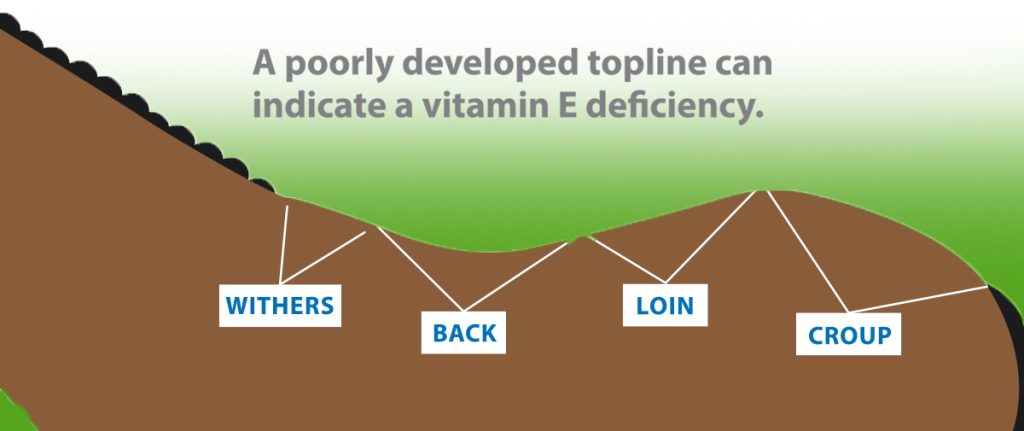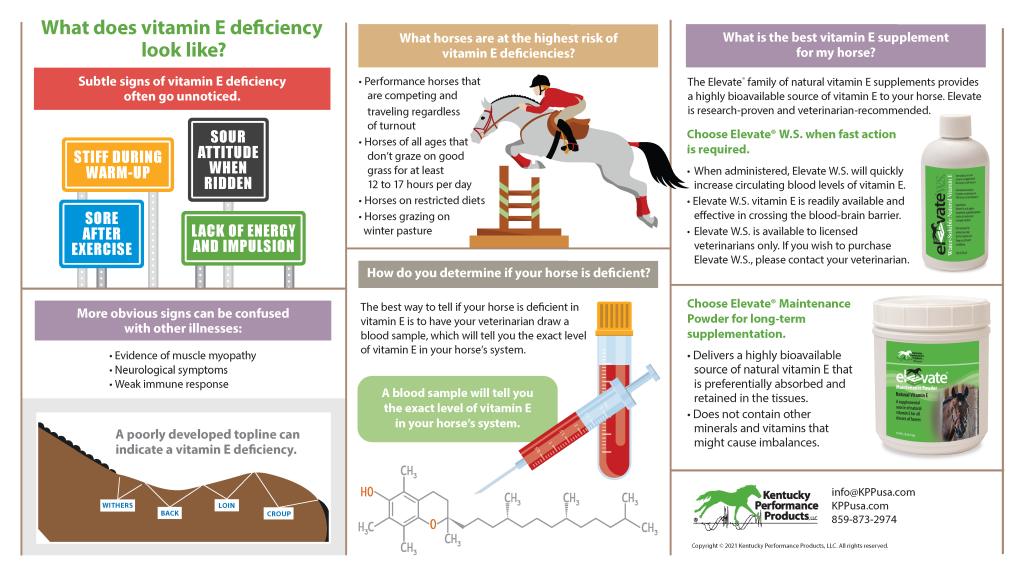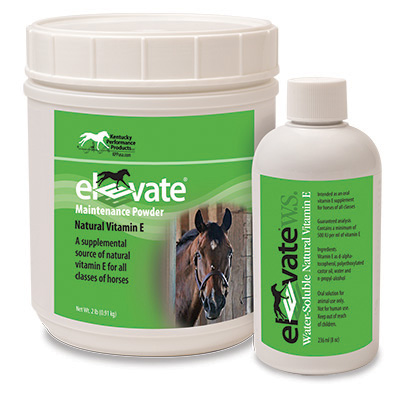What does vitamin E deficiency look like in horses?

These subtle signs of vitamin E deficiency often go unnoticed.
- Stiff during warm-up
- Sore after exercise
- Sour attitude when ridden
- Lack of energy and impulsion
More obvious signs can be confused with other illnesses:
- Evidence of muscle myopathy
- Neurological symptoms
- Weak immune response
What horses are at the highest risk of vitamin E deficiencies?
- Performance horses that are competing and traveling regardless of turnout
- Horses of all ages that don’t graze on good grass for at least 12 to 17 hours per day
- Horses on restricted diets
- Horses grazing on winter pasture
How do you determine if your horse is deficient?
- The best way to tell if your horse is deficient in vitamin E is to have your veterinarian draw a blood sample, which will tell you the exact level of vitamin E in your horse’s system.

The Elevate® family of natural vitamin E supplements provides a highly bioavailable source of vitamin E to your horse. Elevate is research-proven and veterinarian-recommended.
Choose Elevate® W.S. when fast action is required.
- When administered, Elevate
W.S. will quickly increase circulating blood levels of vitamin E. - Elevate W.S. vitamin E is readily available and effective in crossing the blood-brain barrier.
- Elevate W.S. is available to licensed veterinarians only. If you wish to purchase Elevate W.S., please contact your veterinarian.
Choose Elevate® Maintenance Powder for long-term supplementation.
- Delivers a highly bioavailable source of natural vitamin E that is preferentially absorbed and retained in the tissues.
- Does not contain other minerals and vitamins that might cause imbalances.
Article written by KPP staff.
Copyright (C) 2023 Kentucky Performance Products, LLC. All rights reserved.
The Horse That Matters to You Matters to Us®
Since 1998, Kentucky Performance Products has simplified a horse owner’s search for research-proven nutritional horse supplements that meet the challenges facing modern horses. Our horse supplements target specific nutritional needs and are formulated to complement today’s feeds, thus safeguarding against over-supplementation. Each product is scientifically formulated and made with high-quality ingredients at certified manufacturing facilities. Kentucky Performance Products is proud to offer a quality assurance promise backed by a money-back guarantee. Kentucky Performance Products brings you horse supplements you can count on because the horse that matters to you, matters to us. KPPusa.com




2 Comments
Is it safe for EMS/PPID horses?
Yes. Our vitamin E products are safe for EMS and PPID horses.
Elevate WS liquid contains no sugar.
Elevate maintenance powder contains a small amount of sugar (5 grams per scoop) which when fed as directed will not significantly increase the percent NSC of the diet. This makes it safe for horses being treated for EMS and PPID.